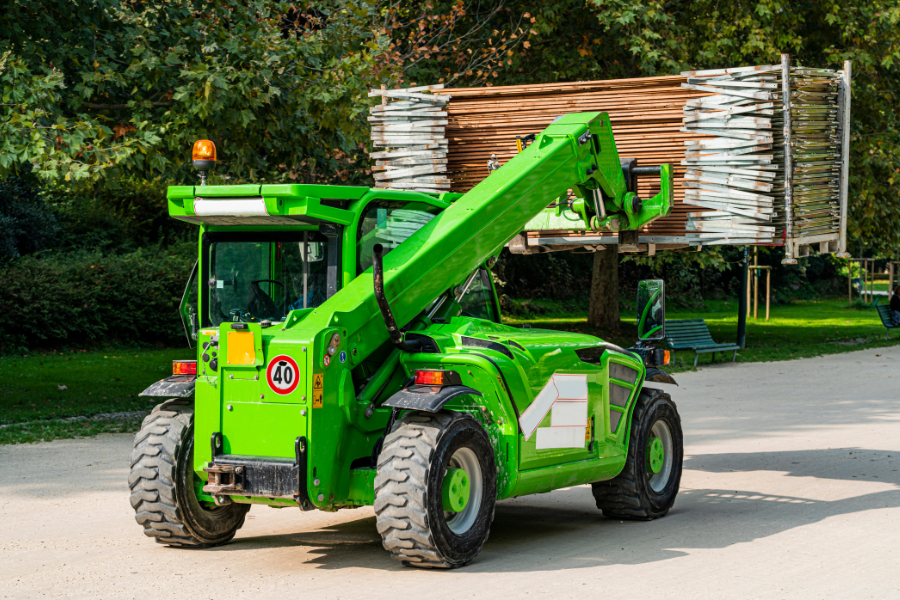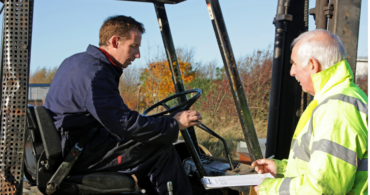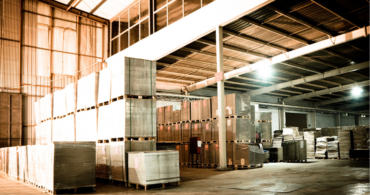When most people think of a forklift, they picture an agile machine zooming around a warehouse. However, these indoor trucks have a free-range counterpart that roams the rocky and uneven environment of ranches, construction sites and military bases: rough terrain forklift trucks.
A warehouse is a predictable environment where the floors are smooth, the temperature is (relatively) consistent and four walls and a roof protect the equipment. The same cannot be said about most exterior worksites where the terrain is uneven, the temperature fluctuates from fringed cold to boiling heat, and everything is exposed to the elements. A tough machine is needed to move heavy loads around these unforgiving locations.
Enter rough terrain forklift trucks. Although these vehicles are primarily outdoor forklifts, you will spot some journeying inside industrial sites and manufacturing plants with heavy lifting needs. Some possible applications for an all-terrain forklift include:
- Transporting heavy construction materials, such as loads of bricks, steel beams and drainage pipes.
- Moving one-ton bales of hay on a ranch.
- Loading and unloading cargo containers in ports.
Rough terrain forklift training
It violates OSHA (the Occupational Safety and Health Administration) regulations for someone to operate an all-terrain forklift without proper training. Controlling rough terrain forklift trucks is different than driving counterbalanced warehouse forklifts. Uneven surfaces and other challenges present unique tests for these forklift drivers. That’s why drivers must pass an OSHA-approved all-terrain forklift certification course. Businesses that circumvent this training will face a heavy fine, up to tens of thousands of dollars.
The three types of rough terrain forklift trucks
OSHA has seven classifications of powered industrial trucks (i.e., forklifts), and the final slot is reserved for these beasts. There are three types of class 7 rough terrain forklifts: vertical mast rough terrain forklifts, variable reach rough terrain forklifts and mounted rough terrain forklifts.
Vertical mast rough terrain forklift
Also known as load lifter forklifts, vertical mast rough terrain forklifts closely resemble the traditional counterbalanced warehouse lift with a vertical mast in front of its cab. However, this all-terrain forklift is usually bigger than its indoor counterpart, with pneumatic (air-filled) tires larger in front than at the rear. This design helps the vertical mast rough terrain forklift navigate uneven ground. On average, a vertical mast rough terrain forklift can lift 6,000-8,000 pounds. Because these machines must lift so much weight, they operate best on dry ground. Wet or muddy surfaces can cause the forklift’s rough terrain tires to slip, creating a potentially dangerous situation.
Variable reach rough terrain forklift
Also known as telehandlers, variable reach rough terrain forklifts are sometimes described as a combination of a crane and a forklift. This all-terrain forklift features a cab that looks like half of a dune buggy (cut down the middle) plopped on top of an industrial vehicle. Its four wheels are typically pneumatic and designed for rugged ground. Its most prominent feature is a telescoping arm, or boom, attached to the vehicle’s rear allowing the machine to place cargo in areas most forklifts can’t reach, such as on top of roofs. The boom can move up, down, left and right, tilt forward, backward and side-to-side, and extend typically as much as 30 feet up to a 70-degree angle. When not in use, the boom rests beside the cab along the length of the vehicle. Variable reach rough terrain forklifts have broad bodies and large wheels designed for uneven ground. Some telehandlers also have hydraulic front stabilizing legs, known as outriggers, that prevent movement and provide additional balance.
Truck or trailer-mounted rough terrain forklift
Also known as a piggyback forklift, the mounted rough terrain forklift looks like a three-wheel warehouse forklift that ran headfirst into a column, compacting everything except the front tires. Mounted rough terrain forklifts have a small cab that rests over the vehicle’s lone rear wheel with a vertical mast directly in front of the cab. The two front wheels are attached on rails that extend a few feet past the mast. Hooks or attachments on these rails allow the machine to be mounted on a truck or trailer to transport it to worksites effortlessly. Usually, the job of a mounted rough terrain forklift is to load and unload materials to and from its transport vehicle.
New rough-terrain forklift trucks can be a little pricey. However, you can find deals on used rough terrain forklifts with some searching. Be sure to weigh the maintenance costs and shortened lifespan of a used truck against the warranty and higher price of a new vehicle.
Whether warehouse or all-terrain, one thing all forklifts have in common is the need for power. Texas Motive Solutions has all the necessary forklift batteries and accessories you need to keep your fleet running. Also, if you have any issues or concerns about your forklift batteries, our forklift repair service team has the expertise to ensure your equipment operates at peak performance. We also offer a complimentary forklift fleet performance analysis. Please call us at (888) 316-2459 or fill out this form to learn about our services and discover everything we can do for you.


